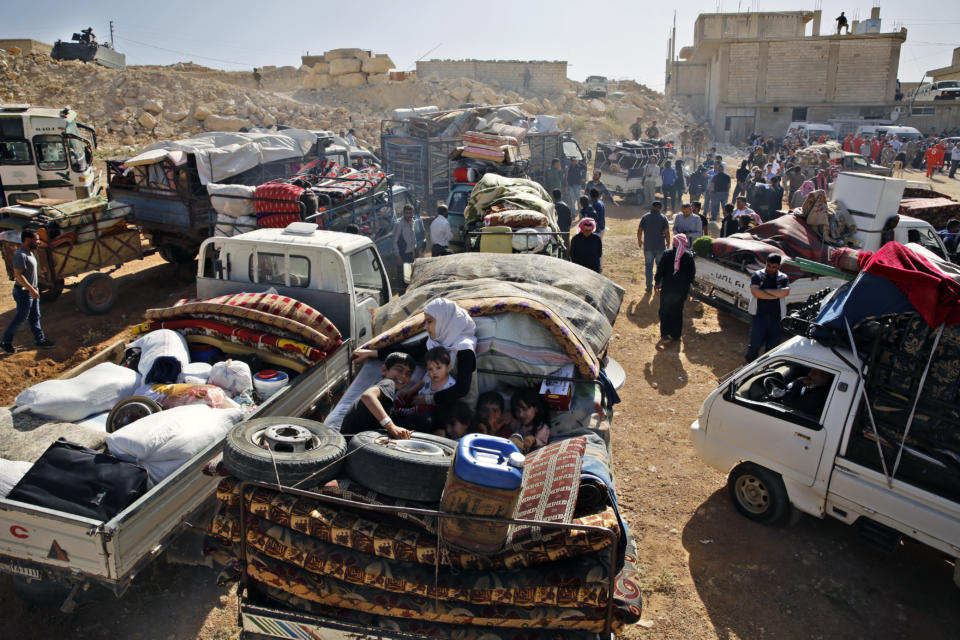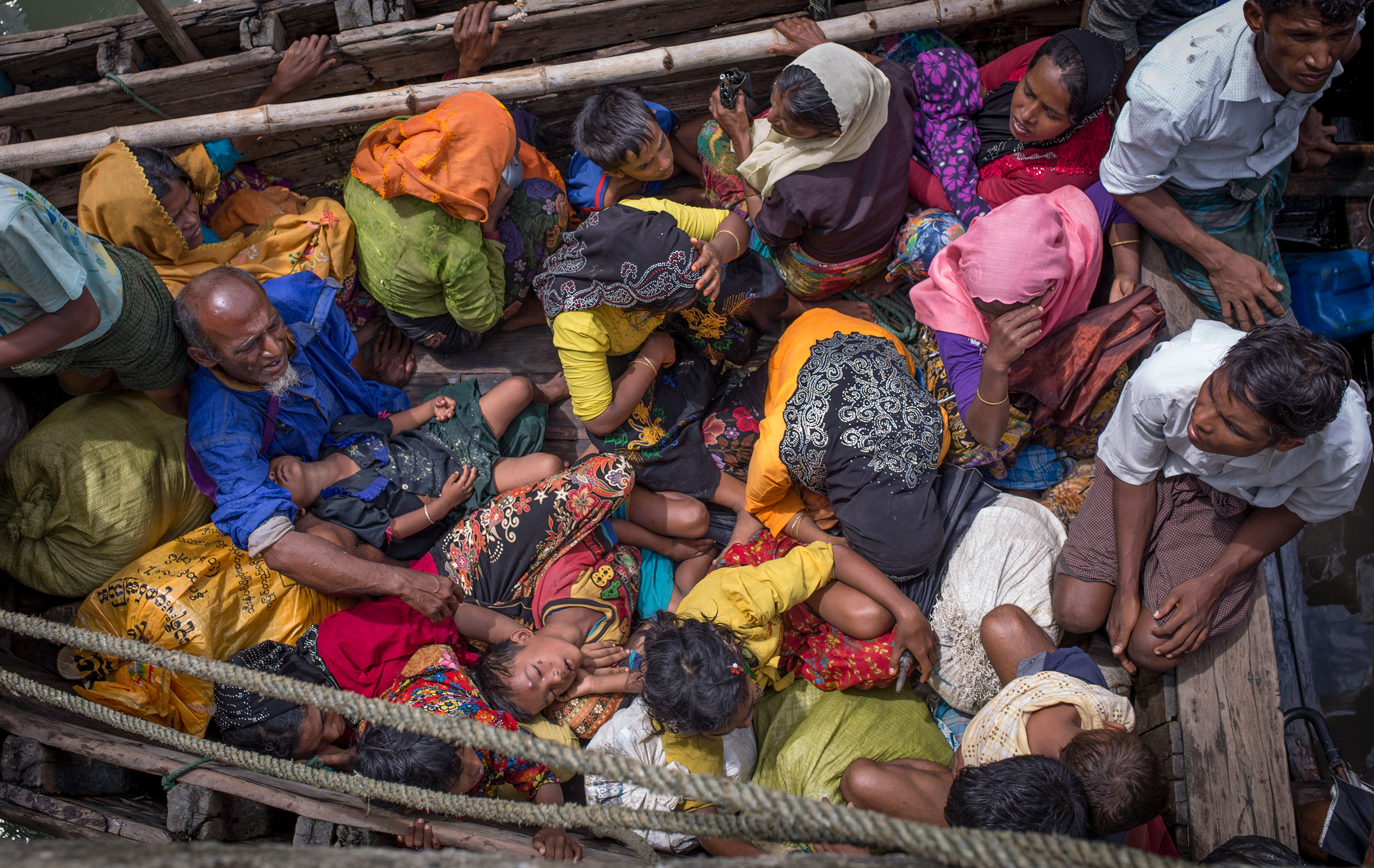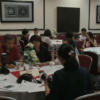For a fifth year, global refugee numbers have reached a new, record high. Some 68.5 million people are now displaced by violence or persecution. With crises emerging and hot spots growing, the United Nations is trying to contain a problem that has no easy solution.
CGTN’s Nick Harper filed this report from the United Nations headquarters in New York.
Follow Nick Harper on Twitter @NickHarperFSN
Since last August, around 700,000 Rohingya Muslims have endured many miles and much misery to escape violence in Myanmar. It’s violence that the U.N. said could constitute genocide.
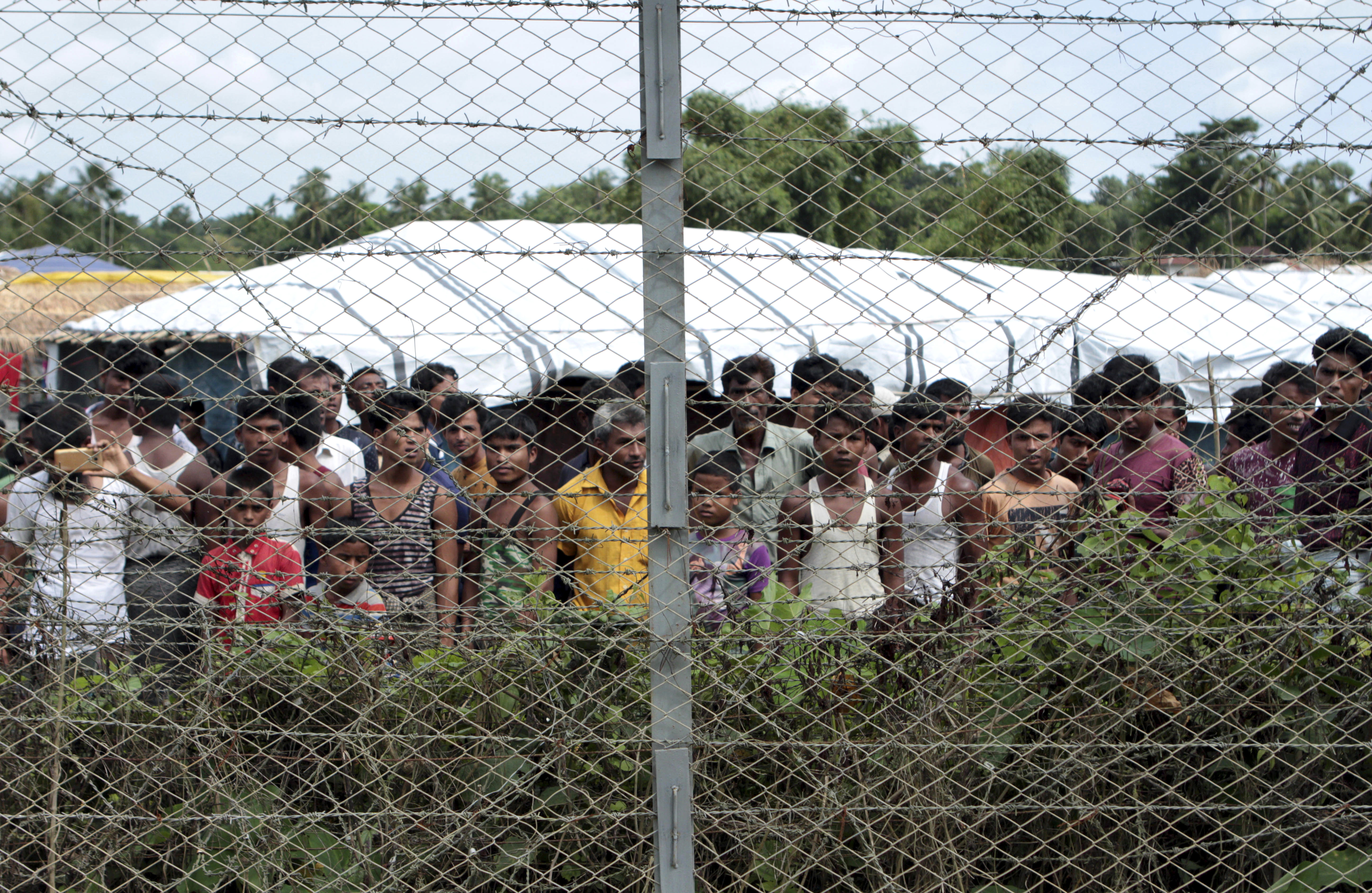
In this June 29, 2018, file photo, Rohingya refugees gather near a fence during a government organized media tour, to a no-man’s land between Myanmar and Bangladesh, near Taungpyolatyar village, Maung Daw, northern Rakhine State, Myanmar.(AP Photo/Min Kyi Thein)
“It’s a human tragedy of enormous proportions. People came over to Bangladesh in a flood, in a very short period of time,” Ninette Kelley, Director of the U.N. Refugee Agency said. “It was one of most rapidly rising situations of forced displacement that we’ve seen in decades.”
Other new hot spots have flared up in the past year. Fresh fighting in the Democratic Republic of the Congo forced tens of thousands of people a day to make the precarious crossing of Lake Albert into Uganda, a country already hosting over 1.4 million refugees.
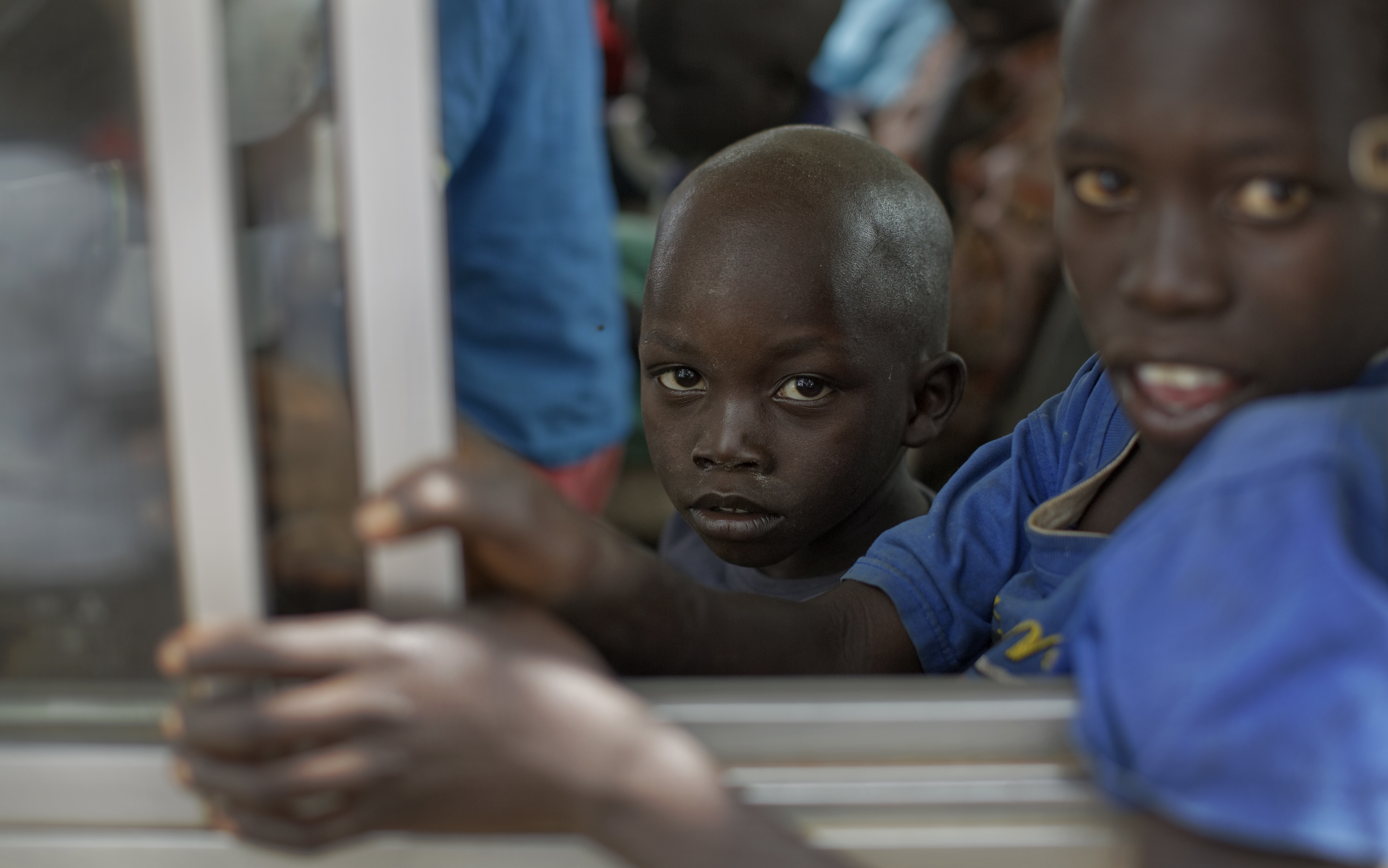
In this file photo, South Sudanese refugees sit in a bus that will take them to a refugee transit center, after crossing from Congo to Uganda at the Saliamusala crossing, near Kuluba, in northern Uganda Thursday, June 8, 2017. (AP Photo/Ben Curtis)
Meanwhile, an economic and constitutional crisis in Venezuela has pushed people to the country’s borders looking for better opportunities abroad.
“So much more pressure could be put on the Maduro government to improve but it hasn’t happened,” Louis Charbonneau, director for Human Rights Watch said. “Hopefully that will change, hopefully we will see a more proactive effort in both the Human Rights Council and here in New York. But it remains to be seen if that’s going to happen.”
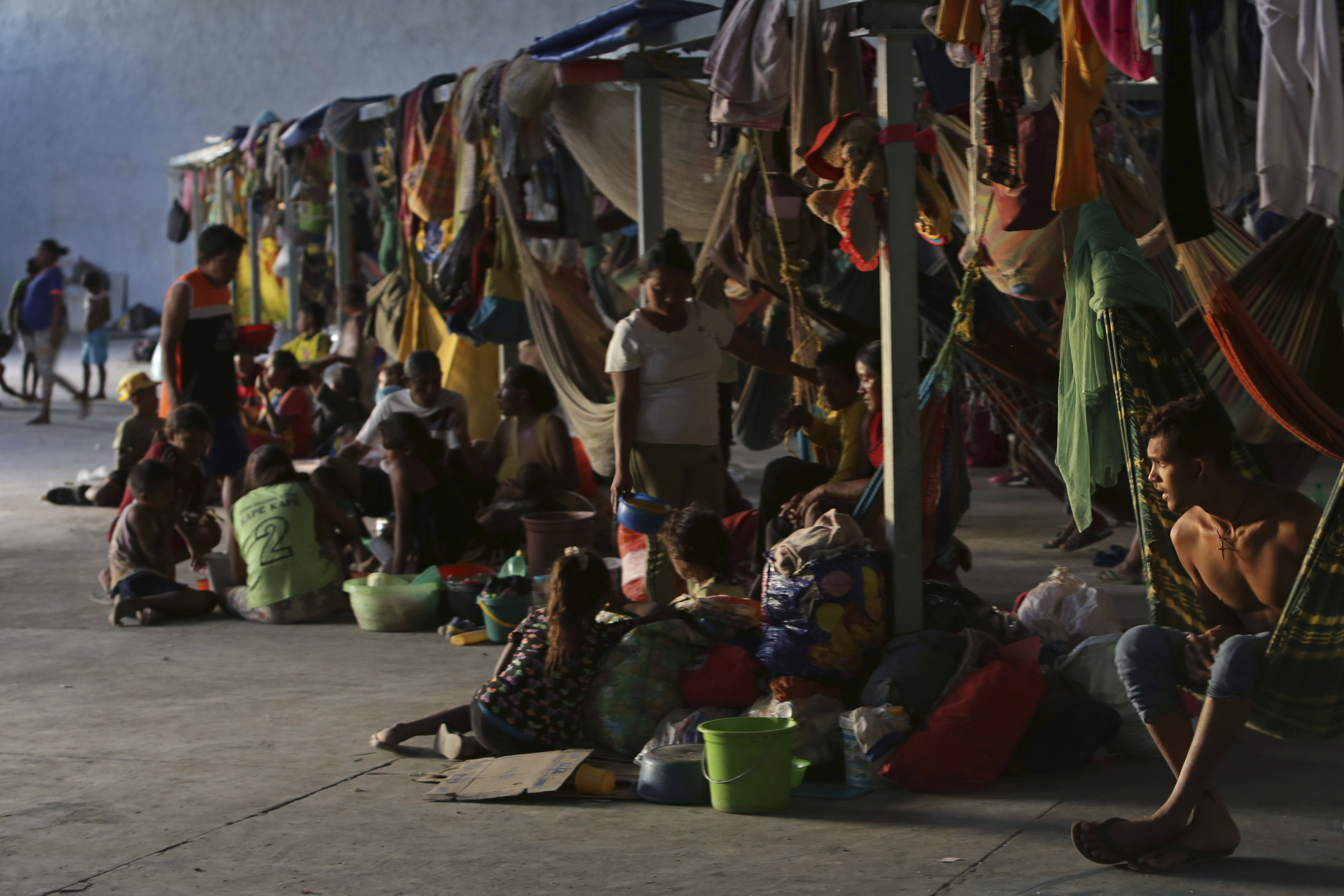
In this March 10, 2018, file photo, a Warao refugee looks out from his hammock next to families sitting on the floor at a shelter in Pacaraima, the main entry point for Venezuelans, in the Brazilian state of Roraima. (AP Photo/Eraldo Peres)
New problems keeping coming up without old ones being solved, and tented cities in South Sudan, Lebanon, and Iraq continue to swell.
“These conflicts are starting to mushroom and not being mitigated enough, and not being solved. So what we’re seeing is a global rise in enforced displacement,” Kelley explained.
While the U.N. is engaged in aid efforts in multiple countries, it’s been criticized for not doing enough to engage repressive or complicit governments.
“Where is the U.N. in all of these migrant crises around the world?” asked Prof. Michael John Williams, director of International Relations at New York University. “It doesn’t seem like the U.N. is really leading on these issues in these localities, nor is there really talking about this as a global issue.”
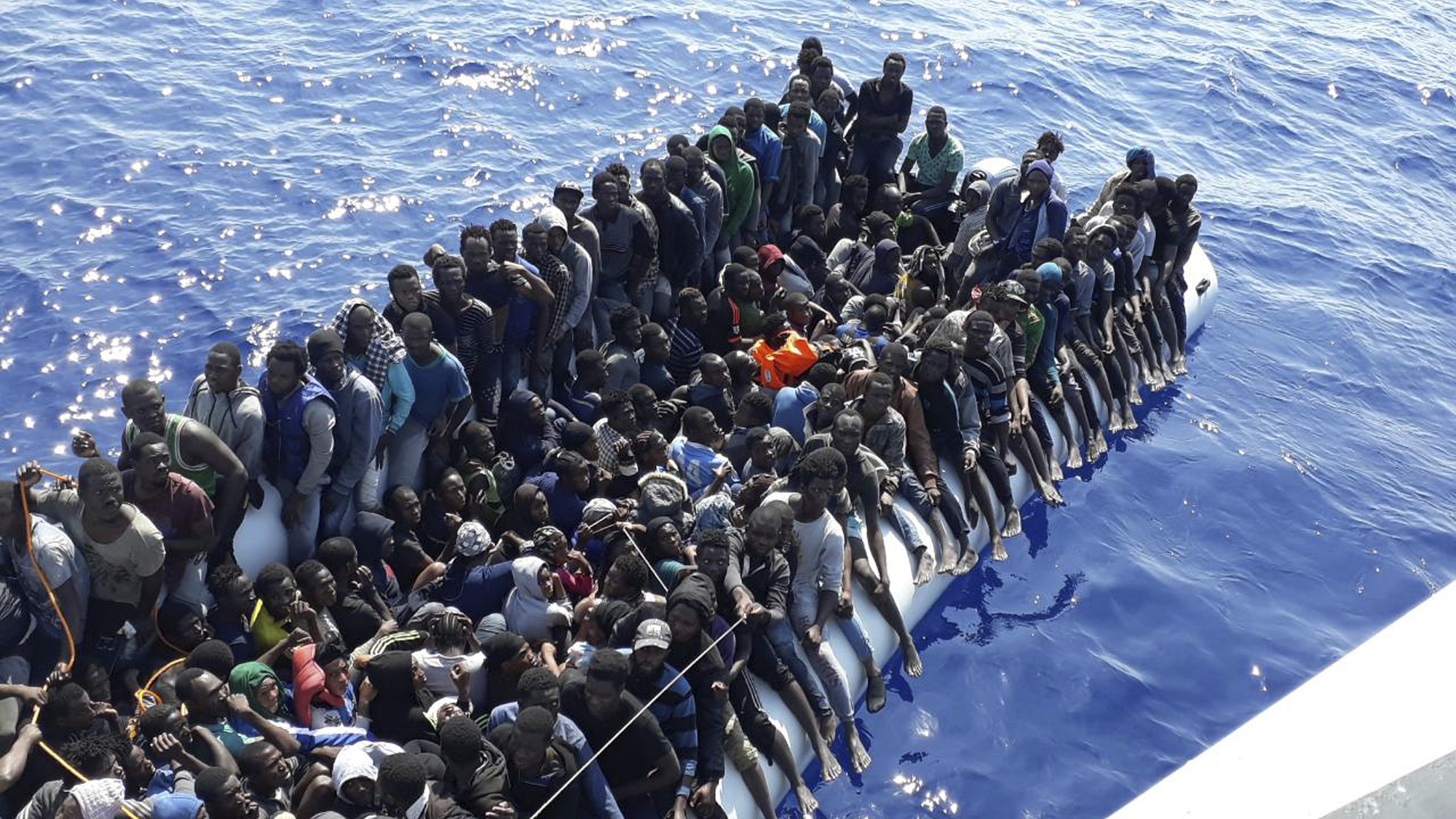
This Sunday, June 24, 2018, file photo provided by the Libyan Coast Guard shows migrants on a ship intercepted offshore near the town of Gohneima, east of the capital, Tripoli. (Libyan Coast Guard via AP, File)
Despite anti-migrant rhetoric in some western nations, it’s not these wealthier countries coming to the aid of the world’s displaced. The U.N. estimates 85-percent are hosted by poorer, developing countries.
Just this month, the U.S. reduced the number of refugees it will accept next year to 30,000 from 45,000 in 2018. Hungary this year slashed its daily quota of asylum seeker admissions to just two, down from 60 in 2016.
At this year’s U.N. General Assembly, the migrant issue will be largely sidelined until the U.N.’s intergovernmental conference in Marrakech in December. Until then, the U.N. hopes the millions of migrants and refugees will be remembered as more than just statistics.
 CGTN America
CGTN America